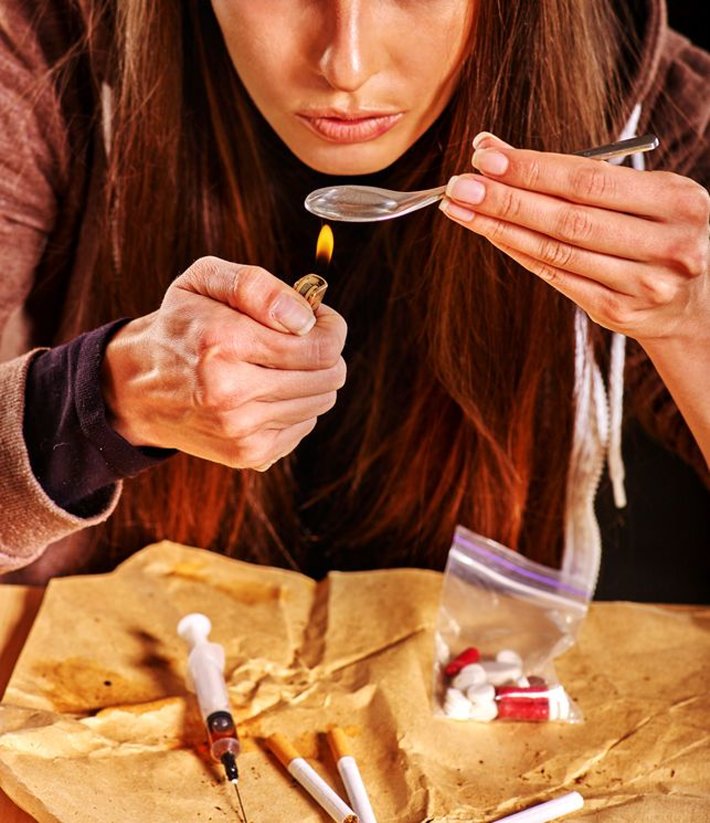How to Support a Heroin Addict Without Enabling

Even when the signs that someone is on drugs are very clear, it can be incredibly difficult for their family members and close friends to acknowledge what is really happening. After all, the recognition that someone’s life is in danger due to drug use can bring with it a host of difficult emotions, including confusion, worry, fear, anger, and even guilt. In some cases, this emotional overload is so overwhelming that family and friends reach out for and hold onto the hope that perhaps their loved one is only going through a phase and will handle their drug use on their own. Unfortunately, any time spent waiting for the individual to solve his own addiction problems is time they spend in very real danger. They need help from those who care about them, and who know how to help them.
About Heroin Addiction
Heroin is an opiate drug substance that is derived from the Asian opium poppy plant. In order to create heroin, opium must first be extracted and refined into morphine, which is then further chemically refined into heroin. As an opiate drug substance, heroin is one of the most potent and addictive drug substances currently in existence. Individuals take heroin in order to enjoy the surge of euphoric and pleasurable feelings this drug produces, along with an increased sense of confidence and well-being. Unfortunately, it is the individual’s desire to continuously re-experience these feelings that drive them to continue taking the drug until they fall into the trap of dependence and tolerance.
Along with the desirable effects of heroin use are many undesirable effects that the individual will often try to escape from by using even more heroin. Heroin symptoms include nausea, vomiting, itching, dry mouth, feeling drowsy, mental fogginess, slowed respiration and heart rate, and sudden nodding off. Heroin addicts often don’t even recognize the full extent of damaging effects caused by this drug, which is why they rely on their family members or friends for the help they need to recover.
Supporting Without Enabling
In order to properly support a heroin addict onto and through the path of recovery, it is important to understand the difference between helping and enabling. Helping a heroin addict means that you make them aware of the fact that you understand what is occurring and you are willing to help them recover but will not tolerate or support any further heroin use. Enabling a heroin addict means that you are allowing them to continue their heroin use through either intentional or unintentional support of this habit. Following is how to properly support and help a heroin addict:
- Learn all about heroin, heroin addiction, and heroin rehabilitation. The more you understand what your loved one is going through, the more you will be able to effectively support them onto the path of full recovery.
- Get help and support from others. Finding a reputable and effective rehabilitation treatment program with highly trained and experienced addiction counselors can help to ensure that you receive the help and support you need while you are giving help and support to your loved one.
- Confront your loved one about their addiction. Whether you do this on your own, with other family members, or even with the help of a professional interventionist or addiction specialist, the main point is to calmly let your loved one know that you are aware of their addiction, that you will not tolerate their continued drug use, and that you are willing and able to support them on the road to full recovery. This should include explaining that you will be withdrawing financial and other support should they choose to refuse your help--which means that you will not enable them, but only support them on the path to recovery.
- Foster hope, for you and your loved one. It can sometimes be difficult to be hopeful that a heroin addict will take control of their life and put an end to their addiction problems, but it is important to keep pushing for this outcome. Sometimes an individual receives an intervention and walks away, refusing to get help, only to turn around and ask for help a short time later. By being persistent in one’s refusal to tolerate or enable their loved one’s further drug use but willing to fully support their recovery, you can foster hope that can grow and catch on.
Heroin addiction can be very difficult to face and resolve, but the important thing to remember is that it can be resolved, and the individual can move on to a healthier, happier future. If you know how to support recovery without enabling, you can strengthen your loved one’s ability to see the possibility of full recovery and to actually achieve it.


 ®
®